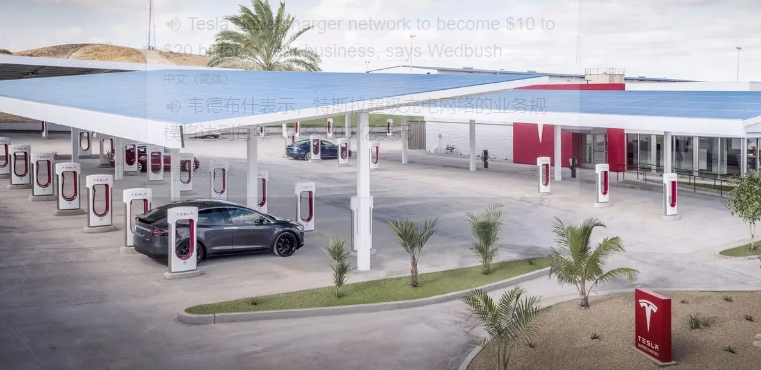
A Wedbush analyst is estimating that Tesla’s Supercharger network will become a $10 to $20 billion a year business by the end of the decade.
When Tesla first launched the Supercharger network in 2012, it did it because no one else was deploying DC fast-charging stations for long-distance travel.
It was doing it as a service to its owners.
At the time, Tesla CEO Elon Musk even said that the Supercharger network would “never be a profit center” for the automaker – meaning that it didn’t plan to make money from it. It was first intended to help them sell electric cars.
But to be fair, not many people could have predicted what it would have become, and it’s the only global DC fast-charging network and by far the most extensive charging network in North America.
With Tesla now having a fleet of millions of vehicles using the network and opening it up to EVs from other automakers, financial analysts are starting to see the Supercharger network has a massive business that is going to partly replace gas stations, and they want to value it.
Wedbush Securities analyst Dan Ives, who has been covering Tesla for a long time, came out with a new note to clients today in which he stated that he believes the Supercharger network will represent 3% to 6% of Tesla’s total revenue or $10 to $20 billion in revenue by 2030.
Ives wrote:
With the introduction of Tesla’s Magic Dock, an adapter that will allow non-Tesla EVs to charge on the NACS standard, this provides the company an incremental opportunity to further expand its charging footprint to the entire EV fleet.
The analyst added:
We view this as another strategic move by Musk & Co. in the long-term story as the supercharger network is a large monetization opportunity with the company now taking more market share in the charging network ecosystem domestically while laying the foundation for a successful EV transformation over the next decade.
Top comment by Haggy Liked by 6 people
Many gas stations would be barely profitable without the attached convenience store. EV charging takes longer, is more likely to be for long trips, and more likely to coincide with a meal stop or something else that takes about the same time as charging.
So far, Tesla has left the business end of the parking lot up to others. Unlike as with early superchargers, more and more are in areas surrounded with nothing but the same fast food restaurants and no opportunities to do anything else.
Instead, charging companies want to make a profit from the charging itself. Perhaps down the line, stores could validate a charging session the way they do for an hour of parking. Or shopping centers could offer low cost charging on their own, sponsored by local businesses on a break even basis.
It's way too early to say how it will play out in the long run, but there's a lot of profit compared to the wholesale kWh cost, and plenty of room for more creative ways for competition. We don't need a near monopoly, and other charging companies can't make a profit without partnering with businesses, the way independent gas stations contract with oil companies.
View all comments
Ives is one of the most highly ranked analysts on the financial analyst ranking system TipRank – #121 out of 8,527 Wall Street analysts.
Electrek’s Take
I always like to point out that DC fast-charging doesn’t really replace the gas station business because most of the EV charging is going to be level 2 charging at home and businesses.
But DC fast-charging is an important piece of the puzzle as it enables long-distance driving.
It is not going to be as big as gas stations, but it is going to be big business, and Tesla is going to be a huge part of it. Dan’s analysis sounds about right to me.